In the intricate tapestry of the American economy, a significant portion of Social Security and Medicare taxes remains uncollected, primarily due to unreported tips and insurance premiums. This issue has far-reaching implications, not only for the financial stability of these vital programs but also for the well-being of workers and the overall economy.
Let’s delve into the complexities of this matter and explore potential solutions to address this growing concern.
The extent of uncollected taxes is staggering, with estimates indicating billions of dollars lost annually. This shortfall directly impacts the Social Security and Medicare programs, potentially jeopardizing their long-term sustainability. Moreover, workers who fail to report their full income may face reduced benefits upon retirement or encounter difficulties accessing healthcare services.
Uncollected Social Security and Medicare Taxes on Tips

The underreporting of tips by workers and the resulting uncollected Social Security and Medicare taxes on those tips is a significant issue that has long plagued the U.S. tax system. This problem has far-reaching implications, affecting not only the revenue streams of these vital programs but also the overall integrity of the tax system.
Estimates suggest that billions of dollars in Social Security and Medicare taxes go uncollected each year due to unreported tips. This shortfall has a detrimental impact on the financial health of these programs, which rely on these taxes to provide benefits to millions of Americans.
The underreporting of tips also creates an unfair advantage for businesses that fail to comply with the law, allowing them to avoid paying their fair share of taxes.
Historical Overview of Efforts to Address the Issue
Recognizing the severity of this problem, policymakers have taken several steps over the years to address the issue of uncollected Social Security and Medicare taxes on tips. These efforts have included legislative proposals and administrative actions aimed at improving compliance and ensuring that workers and businesses fulfill their tax obligations.
- Legislative Proposals:
Various legislative proposals have been introduced in Congress to address the issue of uncollected taxes on tips. These proposals have ranged from requiring electronic reporting of tips to increasing the penalties for non-compliance. While some of these proposals have gained bipartisan support, none have been enacted into law due to various political and practical challenges.
- Administrative Actions:
In addition to legislative efforts, the Internal Revenue Service (IRS) has taken administrative actions to improve compliance with tip reporting requirements. These actions have included increased audits of businesses and outreach campaigns to educate workers and employers about their tax obligations.
The IRS has also worked with industry groups to develop best practices for tip reporting and compliance.
Despite these efforts, the issue of uncollected Social Security and Medicare taxes on tips persists. The complexities of the tax system, the challenges of enforcing compliance, and the lack of political consensus on legislative solutions have all contributed to the ongoing nature of this problem.
The Role of Employers in Collecting Social Security and Medicare Taxes on Tips
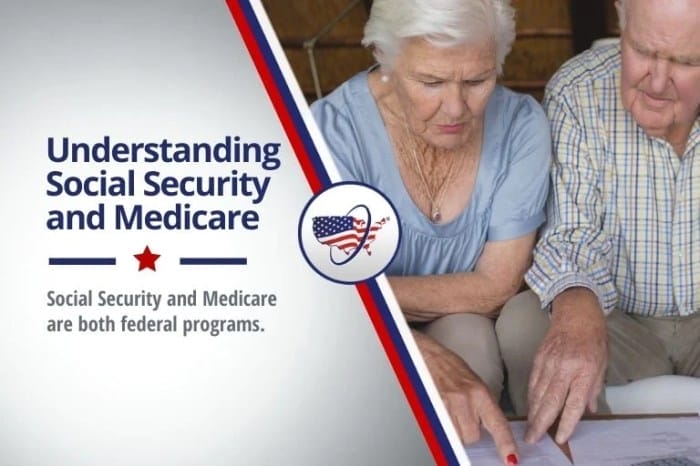
Employers play a crucial role in collecting Social Security and Medicare taxes on tips received by their employees. They are responsible for reporting and withholding these taxes, ensuring compliance with tax regulations.
Employer Responsibilities
- Tip Reporting: Employers must provide employees with a form called “Form 8027, Employer’s Annual Information Return of Tip Income and Allocated Tips.” Employees are required to report their tip income on this form, which is then used by employers to calculate the amount of Social Security and Medicare taxes owed.
- Withholding Taxes: Once the amount of taxes owed is determined, employers are responsible for withholding these taxes from employees’ paychecks. The amount withheld is based on the employee’s tip income and their applicable tax rate.
- Depositing Taxes: Employers are required to deposit the withheld taxes to the Internal Revenue Service (IRS) on a regular basis. The frequency of deposits depends on the amount of taxes collected.
Challenges in Collecting Tips
- Cash Transactions: Many tips are paid in cash, making it difficult for employers to track and report accurately. This can lead to underreporting of tip income and potential tax evasion.
- Difficulty in Tracking Tip Income: Employers may not have access to accurate records of tip income, especially in industries where tips are a significant portion of employees’ earnings. This can make it challenging to determine the correct amount of taxes owed.
- Employee Non-Compliance: Some employees may intentionally underreport their tip income to avoid paying taxes. This can lead to financial losses for the government and unfair competition for businesses that comply with tax regulations.
The Impact of Uncollected Taxes on Workers
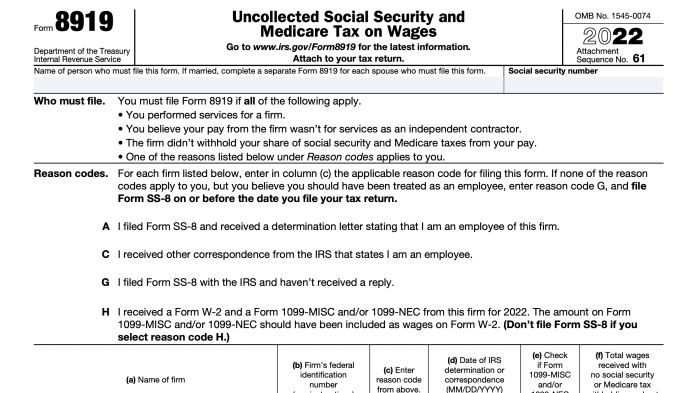
Uncollected Social Security and Medicare taxes on tips can have significant consequences for workers, both in the short and long term. Understanding these implications is crucial for workers to make informed decisions and take necessary steps to protect their financial security.
One of the primary concerns associated with uncollected taxes is the potential reduction in benefits upon retirement. Social Security and Medicare benefits are primarily funded through payroll taxes, and workers who fail to pay their fair share may experience reduced benefits when they retire.
This can have a substantial impact on their financial well-being during their golden years.
Retirement Benefits
Social Security benefits are designed to provide a safety net for workers during retirement. These benefits are calculated based on a worker’s lifetime earnings, and those who have not paid their full share of taxes may receive lower benefits. This can lead to financial hardship, especially for individuals who rely heavily on Social Security as their primary source of income during retirement.
Healthcare Coverage
Medicare is a government-sponsored health insurance program that provides coverage for individuals aged 65 and older, as well as those with certain disabilities. Medicare taxes are used to fund this program, and workers who fail to pay their fair share may face higher costs for healthcare services in the future.
This can be a significant burden, particularly for individuals with chronic health conditions or those who require specialized medical care.
Penalties and Fees
In addition to the potential reduction in benefits, workers who fail to pay their Social Security and Medicare taxes on tips may also face penalties and fees. The Internal Revenue Service (IRS) can impose substantial fines and interest on unpaid taxes, which can further strain the financial resources of affected workers.
Strategies for Improving Tip Reporting and Collection
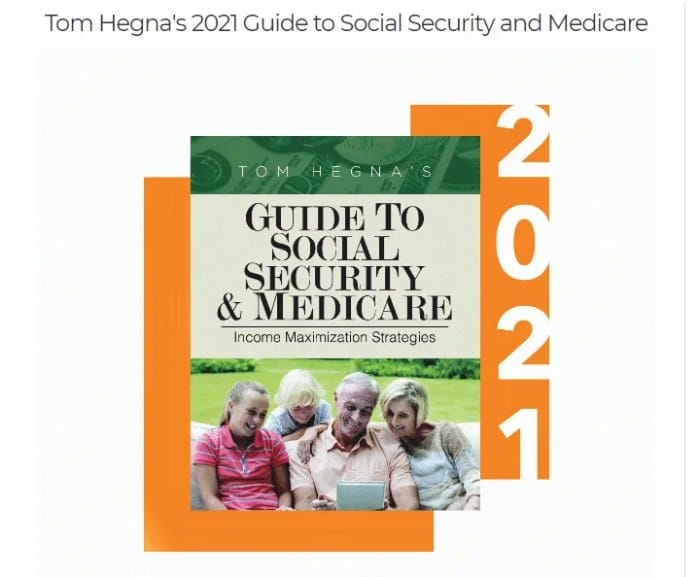
To effectively address the issue of uncollected Social Security and Medicare taxes on tips, it is crucial to implement innovative approaches and best practices that encourage accurate tip reporting and efficient collection. These strategies involve leveraging technology, fostering collaboration among stakeholders, and promoting awareness and education.
The Role of Technology in Facilitating Tip Reporting and Collection
Technology plays a pivotal role in improving tip reporting and collection by providing convenient and efficient solutions for both employers and employees. The use of electronic payment systems, mobile apps, and online platforms can significantly streamline the process and reduce the burden of manual reporting.
- Electronic Payment Systems: Electronic payment systems, such as credit cards and digital wallets, provide a convenient and secure method for customers to pay their bills, including tips. These systems can be integrated with point-of-sale (POS) systems to automatically calculate and record tips, eliminating the need for manual reporting by employees.
- Mobile Apps and Online Platforms: Mobile apps and online platforms specifically designed for tip reporting can provide employees with an easy and user-friendly interface to record their tips. These platforms can also be integrated with payroll systems to automatically calculate and withhold the appropriate amount of taxes, ensuring compliance with tax regulations.
Tip-Sharing Arrangements and the Role of Employers
Tip-sharing arrangements, where employees pool their tips and distribute them among themselves, can be an effective way to ensure that all employees receive a fair share of tips and that tips are reported accurately. Employers can play a crucial role in facilitating and monitoring tip-sharing arrangements to ensure compliance with tax laws.
- Establishing Clear Policies: Employers should establish clear policies and procedures for tip-sharing arrangements, outlining the rules for tip pooling and distribution. These policies should be communicated to all employees to ensure understanding and compliance.
- Regular Monitoring and Oversight: Employers should regularly monitor tip-sharing arrangements to ensure that they are operating fairly and in compliance with tax laws. This may involve reviewing tip reports, conducting audits, and addressing any discrepancies or irregularities.
The Role of Government Agencies in Enforcing Tip Reporting and Collection
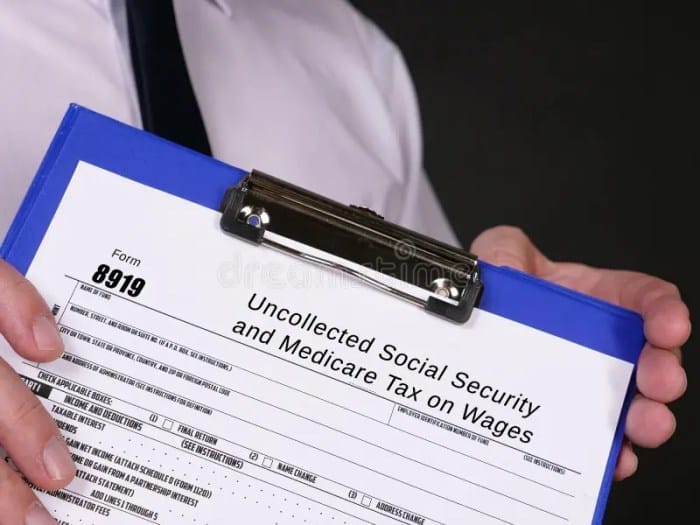
The enforcement of tip reporting and collection is a crucial aspect of ensuring compliance with tax laws and safeguarding workers’ benefits. Several government agencies play vital roles in this process.
The Internal Revenue Service (IRS)
The IRS is responsible for enforcing federal tax laws, including those related to tip reporting and collection. The agency’s primary focus is on ensuring that employers and employees comply with the requirements for reporting and paying taxes on tips.
The IRS conducts audits and investigations to identify instances of non-compliance. It has the authority to impose penalties and fines on employers who fail to meet their obligations regarding tip reporting and collection.
The Social Security Administration (SSA)
The SSA is responsible for administering Social Security and Medicare programs. The agency relies on accurate tip reporting to determine the benefits that workers are entitled to receive.
The SSA works closely with the IRS to ensure that tips are properly reported and that workers receive the full benefits they have earned. The agency may also conduct audits and investigations to identify cases of underreporting or non-reporting of tips.
Challenges in Enforcing Tip Reporting and Collection
Government agencies face several challenges in enforcing tip reporting and collection. These challenges include:
- The difficulty in verifying tip income: Tips are often paid in cash, making it challenging for government agencies to verify the accuracy of reported amounts.
- The lack of awareness among workers and employers: Many workers and employers are unaware of the requirements for reporting and collecting tips. This lack of awareness can lead to unintentional non-compliance.
- The fear of retaliation: Some workers may be reluctant to report their tips accurately due to fear of retaliation from their employers.
Legislative and Policy Options for Addressing Uncollected Taxes on Tips
To address the issue of uncollected Social Security and Medicare taxes on tips, various legislative proposals and policy initiatives have emerged. These measures aim to improve tip reporting and collection, ensuring compliance with tax laws and safeguarding the integrity of the Social Security and Medicare trust funds.
One notable legislative proposal is the Tip Income Reporting and Compliance Act (TIRCA). This bill seeks to establish a federal minimum tip reporting standard, requiring businesses to adopt electronic tip reporting systems and implement tip-pooling arrangements that distribute tips fairly among employees.
Another policy initiative gaining traction is the use of tip-splitting arrangements. Tip-splitting involves sharing tips among employees in a business, ensuring that all workers receive a fair share of tips, regardless of their position or role. This practice promotes equitable distribution of tips and reduces the incentive for underreporting.
Comparative Analysis of Policy Options
A comparative analysis of these policy options reveals varying levels of effectiveness, administrative feasibility, and impact on workers and employers.
- Effectiveness: The effectiveness of a policy option in addressing uncollected taxes on tips depends on its ability to increase tip reporting and collection. Electronic tip reporting systems and tip-pooling arrangements have demonstrated effectiveness in improving tip reporting and reducing underreporting.
- Administrative Feasibility: The administrative feasibility of a policy option considers the resources and efforts required to implement and enforce it. Electronic tip reporting systems may require significant upfront investments and ongoing maintenance, while tip-splitting arrangements may require careful management and oversight to ensure fairness and compliance.
- Impact on Workers and Employers: The impact of a policy option on workers and employers should be carefully evaluated. Electronic tip reporting systems may impose additional record-keeping and reporting burdens on employers, while tip-splitting arrangements may affect the distribution of tips among employees and potentially impact their earnings.
The Impact of Uncollected Taxes on the Economy
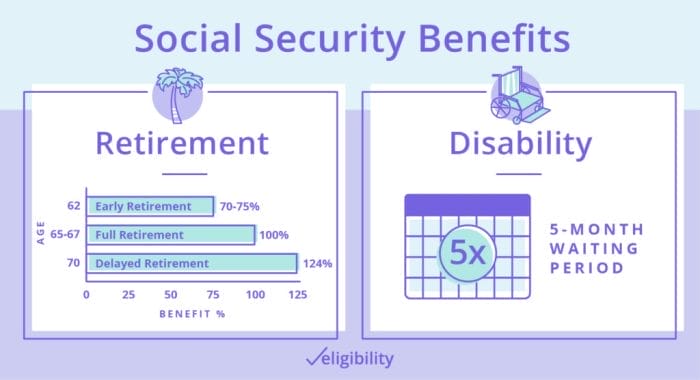
Uncollected Social Security and Medicare taxes on tips have a significant impact on the overall economy, affecting economic growth, tax revenues, and the long-term sustainability of these vital programs.
Economic Growth and Tax Revenues
- Uncollected taxes on tips reduce the amount of revenue available to the government for essential services, infrastructure, and investments. This can lead to budget deficits and increased borrowing, potentially crowding out private investment and slowing economic growth.
- When businesses fail to report and pay taxes on tips, it creates an unfair advantage over those that comply with the law. This can distort competition, leading to market inefficiencies and potentially harming the overall economy.
Sustainability of Social Security and Medicare Programs
- Social Security and Medicare rely on payroll taxes to fund benefits for retirees, survivors, and people with disabilities. Uncollected taxes on tips reduce the amount of revenue available for these programs, potentially leading to benefit cuts or tax increases in the future.
- The long-term sustainability of these programs is already a concern due to demographic changes and rising healthcare costs. Uncollected taxes on tips further exacerbate these challenges, making it more difficult to ensure the programs’ viability for future generations.
Public Awareness and Education Efforts
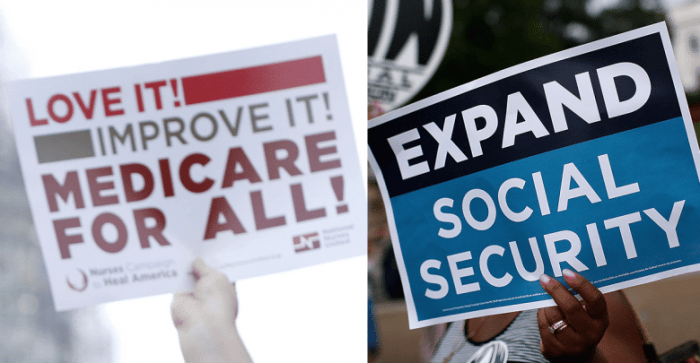
Increasing compliance with tip reporting and collection requirements relies heavily on public awareness and education campaigns. These campaigns aim to inform employers, workers, and the general public about their responsibilities and the importance of accurate tip reporting. Various stakeholders play crucial roles in promoting compliance and raising awareness about this issue.
Role of Employers
Employers have a significant role in ensuring compliance with tip reporting and collection requirements. They can:
- Educate employees about their obligations to report tips and the consequences of non-compliance.
- Provide employees with clear and accessible guidelines on how to report tips accurately.
- Implement systems and processes that make it easy for employees to report tips, such as electronic tip reporting systems.
- Monitor employee compliance with tip reporting requirements and take appropriate action in cases of non-compliance.
Role of Workers
Workers also have a responsibility to comply with tip reporting requirements. They can:
- Familiarize themselves with the rules and regulations regarding tip reporting.
- Keep accurate records of all tips received, including cash and non-cash tips.
- Report all tips to their employers in a timely manner, as required by law.
- Be aware of the consequences of not reporting tips, such as penalties and fines.
Role of Advocacy Groups
Advocacy groups can play a vital role in raising awareness about the issue of uncollected taxes on tips. They can:
- Educate the public about the importance of tip reporting and collection.
- Advocate for policies that make it easier for workers to report tips and for employers to comply with tip reporting requirements.
- Provide support and resources to workers and employers who are struggling to comply with tip reporting requirements.
In various countries, tip reporting and collection practices exhibit diverse approaches and outcomes. Some notable examples include:
-
-*Canada
In Canada, tips are considered part of an employee’s income and are subject to income tax. Employers are responsible for ensuring that tips are reported and taxes are withheld.
-*United Kingdom
In the UK, tips are not subject to income tax but are subject to National Insurance contributions. Employers are required to provide employees with a written statement showing the amount of tips received and the National Insurance contributions deducted.
-*Australia
In Australia, tips are considered part of an employee’s income and are subject to income tax. Employers are required to keep records of tips received by employees and report this information to the Australian Taxation Office.
-*New Zealand
In New Zealand, tips are considered part of an employee’s income and are subject to income tax. Employers are required to provide employees with a written statement showing the amount of tips received and the income tax deducted.
Future Trends and Challenges
The future of tip reporting and collection is likely to be shaped by several emerging trends and challenges.
These include the growth of the gig economy, the increasing use of electronic payment systems, and the potential impact of artificial intelligence and automation.
The gig economy, characterized by independent workers performing short-term tasks or jobs, is rapidly expanding. This trend has the potential to make tip reporting and collection more difficult, as gig workers may not be subject to the same reporting requirements as traditional employees.
Additionally, the increasing use of electronic payment systems, such as credit cards and mobile payment apps, can make it more difficult for employers to track tips and ensure that they are properly reported to tax authorities.
Policy and Technological Solutions
To address these challenges and ensure the sustainability of Social Security and Medicare programs, policymakers and technology companies are exploring a range of potential solutions. These include:
- Increased enforcement of existing tip reporting laws: Tax authorities can increase their efforts to enforce existing laws requiring employers to report tips and employees to report their tip income. This can include audits, fines, and other penalties for non-compliance.
- Improved technology for tip reporting: Technology companies can develop new tools and systems to make it easier for employers and employees to track and report tips. This could include mobile apps, online platforms, and integration with point-of-sale systems.
- Changes to tax laws: Policymakers can consider changes to tax laws to make it easier for gig workers and other non-traditional employees to report their tip income. This could include simplifying the reporting process or providing tax credits or deductions for tip income.
Conclusion

Addressing the issue of uncollected Social Security and Medicare taxes on tips and insurance requires a multifaceted approach. Employers, government agencies, and workers must collaborate to improve tip reporting and collection practices. Technological advancements, such as electronic payment systems and mobile apps, can play a crucial role in facilitating accurate reporting.
Additionally, public awareness campaigns and educational initiatives can help raise awareness about the importance of compliance. By working together, we can ensure the integrity of our social safety net and safeguard the financial security of our nation’s workforce.
FAQs
What are the consequences for workers who fail to report their full tip income?
Workers who underreport their tip income may face reduced Social Security and Medicare benefits upon retirement. Additionally, they may encounter difficulties accessing healthcare services and may be subject to penalties for tax evasion.
How can employers improve tip reporting and collection?
Employers can improve tip reporting and collection by implementing clear policies and procedures for tip reporting, providing training to employees on their responsibilities, and utilizing electronic payment systems that facilitate accurate tip reporting.
What role do government agencies play in enforcing tip reporting and collection?
Government agencies, such as the Internal Revenue Service (IRS) and the Social Security Administration (SSA), are responsible for enforcing tip reporting and collection. They conduct audits and investigations to ensure compliance with tax laws and regulations.
What legislative and policy options are available to address uncollected taxes on tips?
Various legislative proposals and policy initiatives have been introduced to address uncollected Social Security and Medicare taxes on tips. These include increasing penalties for non-compliance, providing tax credits to employers who implement effective tip reporting systems, and exploring alternative methods for estimating tip income.



